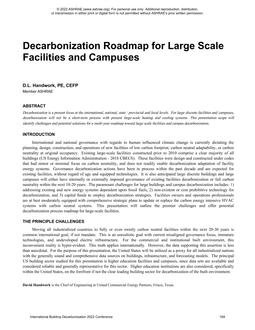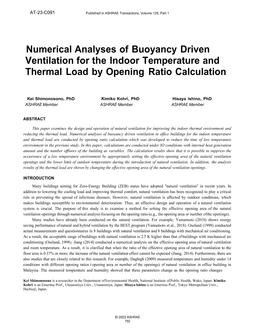
TO-22-C025 – Investigation of an IoT-Based Approach for Automated Fault Detection in Residential HVAC Systems
Automated fault detection and diagnosis (AFDD) in residential heating, ventilation and air-conditioning (HVAC) systems has received lots of attentionin recent times particularly with the advent of smart thermostat technology which has encouraged research into cost-efficient ways of performing AFDDwithout installation of additional sensors. However, investigation of some of the proposed smart thermostat-based methods using field data have revealedthat smart thermostat-based data alone are not sufficient for a reliable AFDD. Most of these studies are based on simulation data rather than field datawhich have more disturbances. Moreover, the simplifications made in some of the studies further reveal the challenge which these AFDD approach wouldhave if implemented in real life systems. Therefore, a more promising approach, i.e., an IoT-based approach that involves additional smart devices, isproposed in this study.
The proposed approach makes use of a simple model, which was trained using outdoor dry-bulb temperature and indoor wet-bulb temperature. The trainedmodel is then used to predict the enthalpy change across the evaporator of a residential HVAC system. The predicted enthalpy difference is next comparedwith actual enthalpy difference computed using temperature and relative humidity measurements from the return and supply side of the HVAC system anddeviations between the two are used to detect presence of fault in the system.
Product Details
- Published:
- 2022
- Number of Pages:
- 10
- Units of Measure:
- Dual
- File Size:
- 1 file , 2.2 MB
- Product Code(s):
- D-TO-22-C025
- Note:
- This product is unavailable in Russia, Belarus

